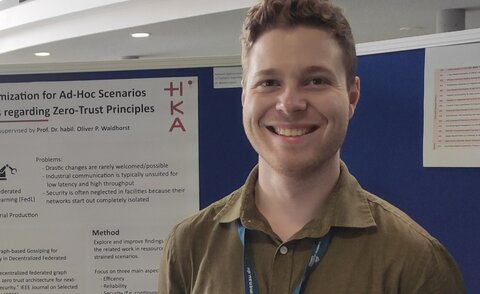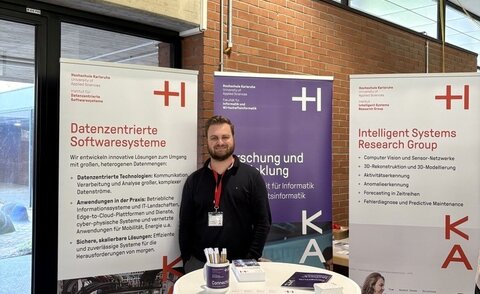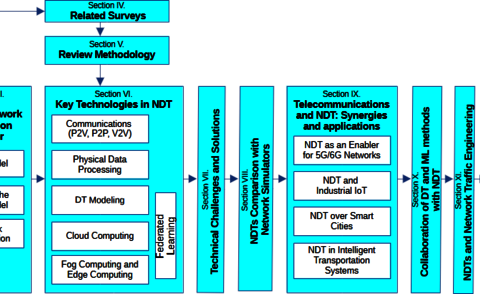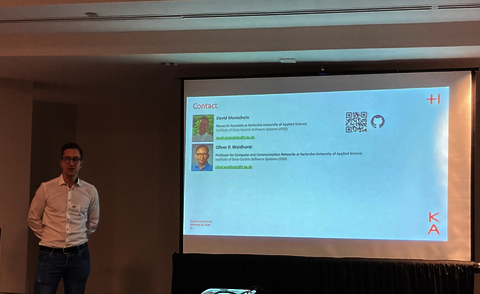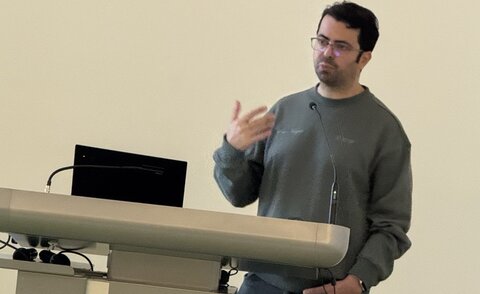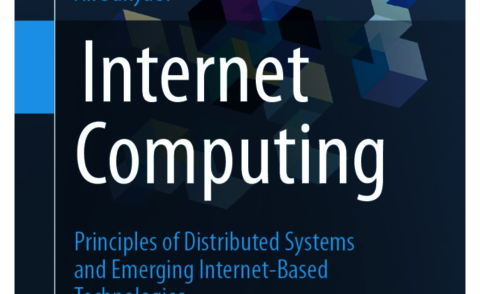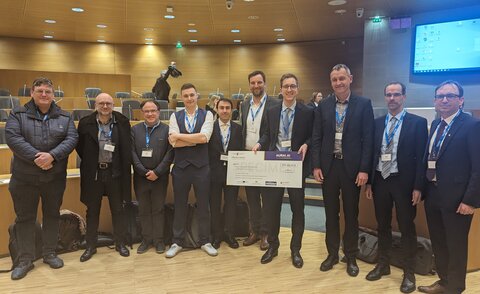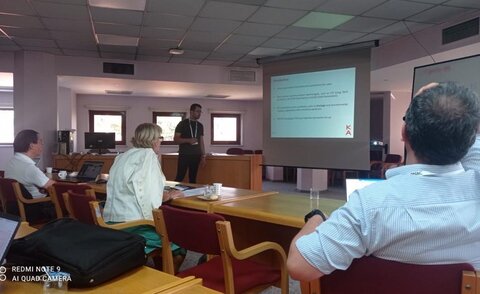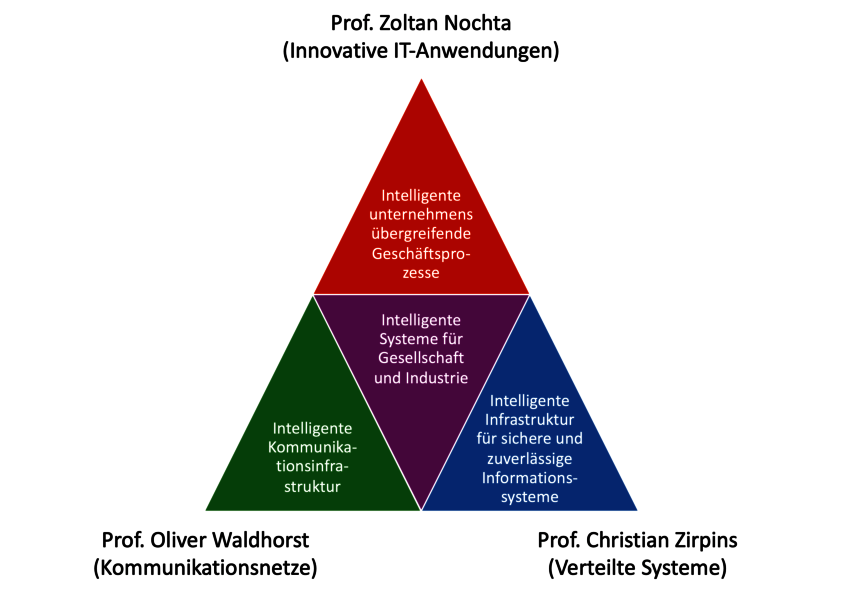
Institute of Data-Centric Software Systems
What are we doing?
The Institute of Data-Centric Software Systems (IDSS) focuses on the efficient communication, processing and analysis of large and heterogeneous data sets and data streams. These data sets are typically generated in modern application scenarios, such as those found in areas like the Internet of Things (IoT), Industry 4.0 and data-driven business models. Our aim is to develop innovative solutions that make it easier to deal with the complexity of this data and provide new insights for a wide range of application areas.
The central claim of our information work is high-quality applied research. We attach great importance to close collaboration with industrial and academic partners to ensure that our research is not only theoretically relevant, but also offers practical solutions to real-world challenges. These collaborations create synergies that contribute both to the further development of the academic discipline and to solving concrete problems in industry.
Our team creates an inspiring and open working environment that actively supports the personal and professional development of our research assistants and students. We offer a wide range of opportunities for further training and participation in exciting research projects. In this way, we not only promote the exchange of knowledge within the team, but also prepare the next generation of researchers and specialists optimally for their future tasks.
Insights into our institute
External content
To use this content (Source: www.xyz.de), please click to Accept. We would like to point out that by accepting this iframes data to third parties transmitted or cookies could be stored.
You can find further information in our Privacy policy.
What are our research topics?
Our team is dedicated to researching innovative technologies and intelligent systems that play a key role in an increasingly networked and data-driven world. The focus is on the following topics:
- Intelligent systems based on large and heterogeneous data volumes and streams: our research is concerned with the development of systems that are able to communicate, process and analyze large volumes of data from diverse, often complex sources. These systems must not only handle structured and unstructured data efficiently, but must also be able to process data streams in real time. The aim is to generate meaningful information work and insights that enable informed decisions and advanced applications.
- Data-driven application scenarios in complex IT environments: One focus is on the investigation and implementation of data-based solutions in various application contexts. These include modern IT landscapes, which often consist of a large number of networked systems, as well as online and cloud platforms that manage and process enormous amounts of data. Our information work also extends to cyber-physical systems that link physical processes with digital control, as well as software-based networks that enable flexible, efficient and dynamic communication in heterogeneous environments.
- Concepts and methods for the efficient, scalable, secure and reliable operation of intelligent systems: A central goal of our research is the development of concepts and methods for the design of intelligent systems that are not only powerful and scalable, but also meet the highest requirements for security and reliability. These systems must be able to adapt to changing environments and requirements while ensuring efficient operation at all times. Our approaches aim to optimize both the performance and robustness of these systems so that they also work reliably in critical infrastructures.
By combining these fields of research, we contribute to the development of future-oriented technologies that meet both social and industrial requirements in the digital age.
In which areas do we conduct research?
The research and teaching focus of Prof. Zoltan Nochta, Prof. Oliver Waldhorst and Prof. Christian Zirpins at the Institute for Data-Centric Software Systems (IDSS) concentrates on the development of intelligent IT systems that are of central importance to both companies and society. The focus here is on the integration of technologies in various application areas.
- Prof. Zoltan Nochta focuses on the design and optimization of cross-company business processes. The aim is to develop IT solutions that help companies to make their processes more efficient and network them with one another in order to create synergies.
- Prof. Oliver Waldhorst is involved in the further development of intelligent communication infrastructures. These should support modern communication networks that are robust, scalable and efficient and form the basis for future digital innovations.
- Prof. Christian Zirpins researches secure and reliable infrastructures for distributed Information Systems. His information work focuses on ensuring security, reliability and scalability in complex distributed systems, which play a central role in many areas of modern IT applications.
Together, this information work aims to develop intelligent systems that address both societal and industrial needs. Research in the three areas thus makes a significant contribution to the design of future-proof IT solutions, which are essential in an increasingly networked world.
